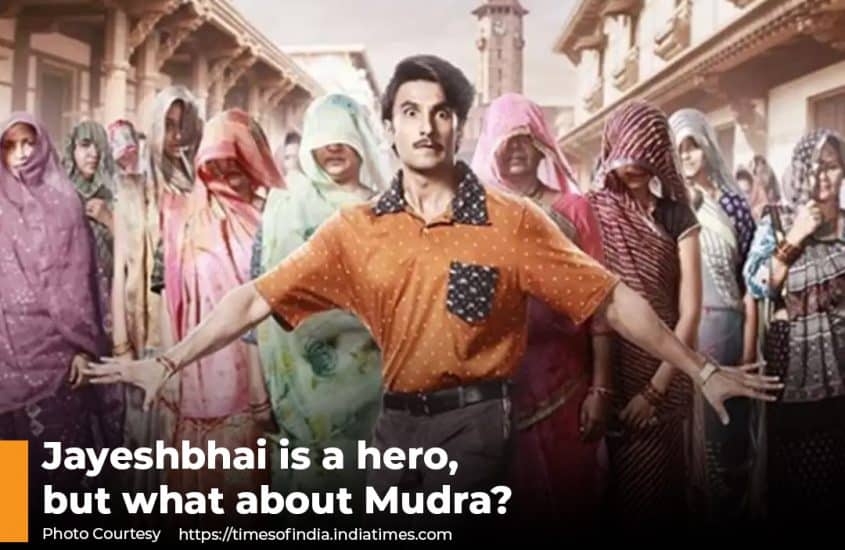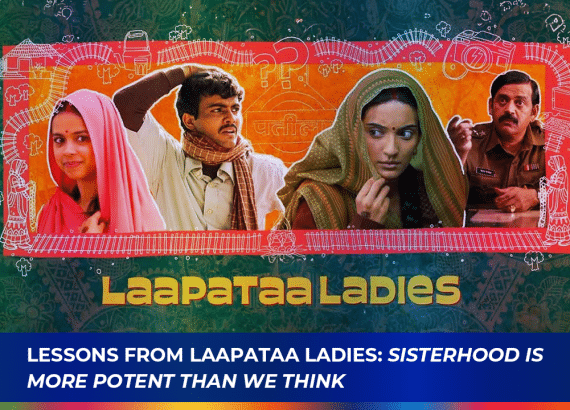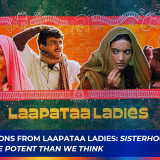Jayeshbhai is a hero, but what about Mudra?

Author: Sumona Chetia
Jayeshbhai Jordaar, starring Ranveer Singh in the titular role, is a Bollywood movie that joined the bandwagon of woke movies about women empowerment. But was the movie really women-centric, or did it focus on the male saviour complex (like always)?
For readers who haven’t watched the movie yet, without any spoilers – Set in rural Gujarat, the plot involves a stereotypical patriarchal family headed by a tyrannical village sarpanch who will only allow the birth of a male heir. Thus, Jayeshbhai, the son, embarks on a mission to save his unborn girl child.
With a star-studded supporting cast of Boman Irani (the stubborn father), Ratna Pathak Shah (the insensitive mother), Shalini Kapoor (the meek wife Mudra) and Jia Vaidya (a mistake that was granted mercy), the movie deals with all possible issues of illegal gender determination, female foeticide, sex ratio, domestic violence, and consent.
A good attempt at displaying a male ally
Shedding toxic masculinity to display a likeable male character was the best element of this movie. Jayeshbhai is a women’s rights warrior, a male ally, a champion of gender equality, and an advocate for the advancement of women.
But what about the women’s representation?
While movies on male allies are welcome, the problem with such stories is that the privileged male always leads the fight. The USP is simple – let the male shine light on the women’s issues. The representation of women remains as the damsels in distress only to be jerked into reality by their male counterparts. There were four central women characters in this movie but sadly, not one of them could shine as equal to Jayeshbhai.
Bollywood has witnessed a fair amount of male allies’ stories who rise from dominant social groups, but that’s it. There is no growth arc for women in these stories when in reality, the plot surrounding such movies is based on the socio-economic status of women.
It’s high time to move beyond the practice of telling stories about patriarchal norms, religious fanaticism, and superstitious absurdities impacting women from the pov of a man.
Jayeshbhai Jordaar is made with good intentions, and it has the potential of a great revolution to start the much-needed conversation, but it’s always the best idea to let women speak for themselves.
With this thought, we look forward to a Mudrabehen Jordaar.









